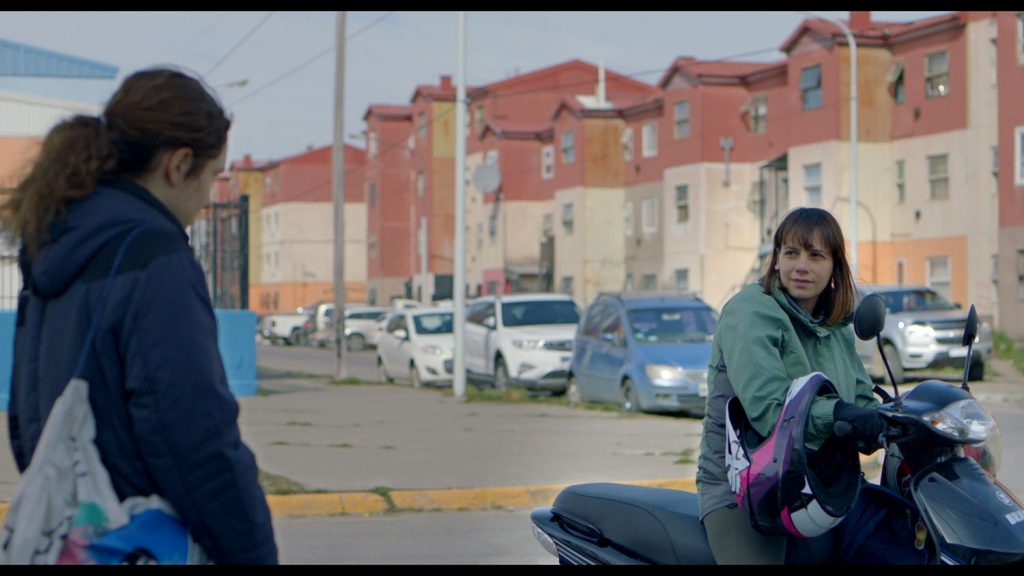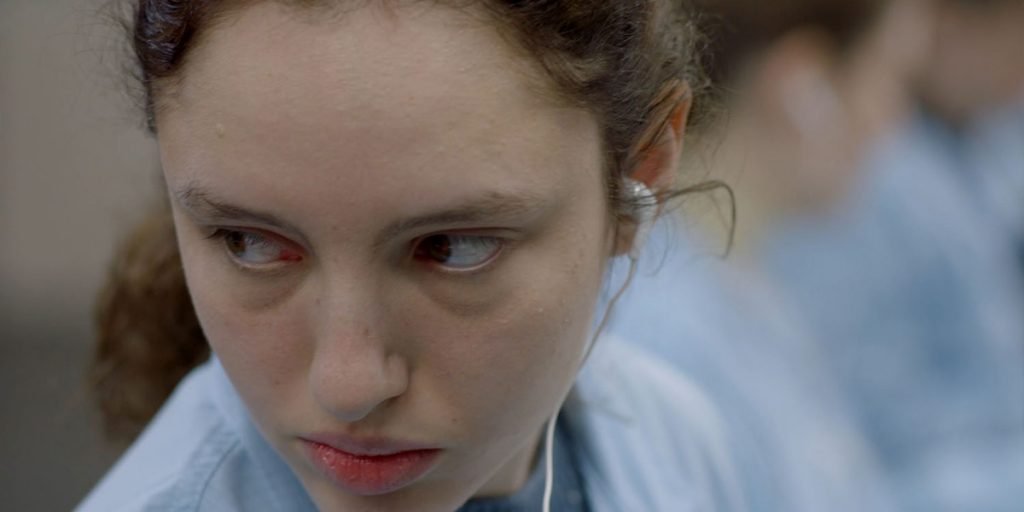Through the story of a girl who travels to Tierra del Fuego to find her brother, La Chica Nueva (The New Girl) offers one of the most realistic portrayals of Argentina ever to be captured on film.
La Chica Nueva (The New Girl) is the story of a girl who travels to the island of Tierra del Fuego to reconnect with a brother whom she barely knows, and ultimately finds a sense of identity and something to fight for. From this synopsis alone, you might expect the film to be a typical coming-of-age story—a tale that follows a young protagonist who embarks on a journey that takes her away from home and who grows into an adult in the process, as she learns to accept herself and finds out who she is. Though all of this certainly happens in the movie, La Chica Nueva is also so much more than that. Screened in competition at the 2021 Torino Film Festival, Micaela Gonzalo’s feature-length directorial debut is one of those rare films that manage to be many things at once, tackling a myriad of themes effectively and earnestly, and ultimately depicting life in Argentina in a way that will affect each member of the audience differently, depending on their own experiences.
Unlike your typical bildungsroman, La Chica Nueva barely gives us any details of Jimena’s (Mora Arenillas, of Invisible) past: all we know is that, one day, she decides to escape a life of poverty that sees her breaking into places to find shelter and selling stolen items to make a living, and to embark on a 36 hour journey to Rio Grande, where her long-lost brother Mariano (Rafael Federman, of Los Sonámbulos) lives. A few more details are eventually revealed later in the film as to when she started living on the street and why the siblings were separated in the first place, but that’s pretty much all we get. Micaela Gonzalo and co-writer Lucía Tebaldi aren’t interested in the sort of linear storytelling and character development you’d usually find in a film of this subgenre: instead, they cleverly show us what Jimena’s life looks like in the present, and use it as a chance to offer us one of the most authentic and realistic portrayals of Argentinian society ever to be captured on film.
There are issues of privilege and inequality in La Chica Nueva, as Jimena eventually ends up working at a factory that has been exploiting its workers for ages, providing little to no job security to its employees. We see bad people who exploit good people, but we are also shown good people who do bad things either out of fear or of necessity — or even, at times, out of habit. It’s a society where boundaries are crossed on a daily basis, and people switch allegiances according to what would benefit them the most, but it’s also a male-dominated society where women get blamed for the evils of the world only to be called upon to rescue the men from a fate they brought upon themselves. It’s a violent, ruthless world that Jimena lives in, and, though there’s certainly room for hope in La Chica Nueva, Gonzalo and Tebaldi opt for a realist approach that doesn’t strive to offer a solution, but rather to make us aware of it.

For a film that approaches so many complex themes, its narrative is pretty straightforward: Mariano lets Jimena stay at his apartment in Rio Grande, and helps her find a job at the electronics assembly and production plant where he works. There, she makes friends with her coworkers, and forms a special bond with one of them, Martina (Jimena Anganuzzi, of Tatuado), who shows her unexpected kindness. But the factory’s employees are underpaid and overworked, and they’re organising a strike at the exact same time in which Jimena’s brother needs her for one of his endeavours. And so, just when she is starting to feel a sense of belonging, Jimena finds herself having to make a very important choice that will determine her fate.
But there’s also a lot happening under the surface in La Chica Nueva, and its accurate portrayal of Argentinan society is conveyed in the details, such as how shady, illegal activities would seem to have become ingrained in the system, so much so that selling stolen items to strangers in exchange of plata doesn’t feel so illegal when we see it happen, just like the thought of embarking on a trip to Chile with a false identity to steal a bunch of phones doesn’t seem to be so out of the world. As the film’s characters go through the motions of a daily routine that couldn’t feel more different to what ours look like, it’s hard not to think about our own privilege, and how, while certain issues are universal, there are others that are only familiar to those who experience them firsthand. The society we’re shown in the film is a place where everyone looks out for themselves, and where people are really struggling to find a sense of community, whether it is underpaid workers who attempt to organise a strike to fight for their rights or siblings who try to get to know one another.
Jimena and Mariano’s relationship is also key as it highlights another aspect of Latin American society — the kinds of expectations that are placed on women. Throughout the film, Mariano’s moral code seems to be in constant evolution, as he only appears to be nice to his sister when she does exactly what he wants her to do, which is ironically often in contrast with his own behaviour. Not only are Mariano’s requests often inconsistent, as he asks her not to steal things only to get her involved in illegal missions of his own, but he also seems to think that he’s in charge of her fate: when Jimena casually mentions her desire to one day open her own hairdresser’s shop, he takes it upon himself to buy her a razor and asks her to shave his beard, hence depriving her of her right to choose her own fate while also making it all about himself, on some level.
Throughout the film, Jimena often pays the price for taking initiatives of her own, as she becomes the target of the excessive, violent reactions of a man who has been repressing his deepest emotions for a lifetime, but then often ends up becoming his saviour when he needs her. It’s this sort of unhealthy behaviour that alerts us of certain dynamics that are so deeply-rooted in society that they have become the norm, so much so that, even when the women working at Jimena’s factory share their deep dissatisfaction with the way they’re exploited at work, they never for one minute think to discuss their personal lives.
If La Chica Nueva is very firm on where it stands from a political point of view, as it highlights the need to be united and fight for one’s rights in the workplace, it’s the other issues it touches upon that also make it an exceptionally realistic, comprehensive portrayal of modern Argentinian society. There are no heroes and villains in the film, only victims of a flawed system that is governed by inequality and uncertainty, whose citizens are simply trying to survive. Thanks to a carefully crafted screenplay and an exceptional performance by Mora Arenillas, Jimena’s journey lets us experience this system firsthand but also provides us with a much-needed dose of empathy, giving us a story that is as much about societal issues as it is about its multifaceted, authentic characters, and that will stay with you for a very long time.
Ua Chica Nueva (The New Girl) was screened at the Torino Film Festival on 27-29 November, 2021.

